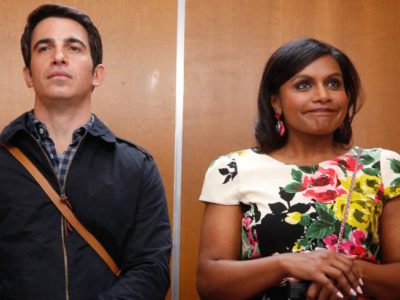I’m not black. I’m not white. I’m not even gray. I’m Bengali–whatever color that is. (Maybe sepia?)
I’ve never really been able to define who I am. But that didn’t stop me from making friends. I was friends with everyone in elementary school–white, black, Spanish, Asian. But then a strange thing happened in middle and high school: The cafeteria became a breeding ground for table segregation. I didn’t have a group to be split up with; being pretty much the only Bengali in my school, I could have gone anywhere.
Flash-forward to college at a place as diverse as the University of Maryland, College Park. By this point, my friends fell roughly along these lines: 1 percent white, 75 percent black and the rest were a mix of Latino and Asian/South Asian.
There was this white guy that I was talking to for a few weeks, and we got into a really interesting conversation about race and diversity and how it seems like so few white men talk to women outside of their race.
He said, “Well…it’s just harder to have stuff in common with them.”
Wait a minute. Them? What did he just say?
“What?” I said.
He replied, “Most people are attracted to other people that look like them, talk like them and sound like them. A lot of studies have shown that.”
I immediately retorted with, “Well, why are you talking to me then?”
“For example, if I told you a Yiddish joke, you wouldn’t get it. But a Jewish girl would. If I took you to a Jewish event, you would be so uncomfortable, and I would be at one of your events, too,” he tried to justify. “It’s just about what people have in common with each other. Like if I found someone that’s just like my mom, I would want to be with her.
First off, I wouldn’t be uncomfortable–I love learning about new cultures. Second, all I could think was what a load of bull. I couldn’t believe what he was saying. To me it sounded like, “It’s too hard to learn about new customs and cultures, so I’m just going to stick with what I know. It’ll be harder to explain all my jokes to you.”
Give me a f-king break. It’s 2016. I thought that was so ignorant and closed-minded of him.
I immediately texted my friends afterwards because I wanted to get their thoughts. They were livid. One of my friends said, “It’ll always be hard for people to transcend their differences, but it can be done if people would actually, um, TRY. But most people just don’t have it in them.” Another friend said, “He’s so dumb. Anyone who’s not Jewish–black or white–isn’t gonna get his dumb jokes.”
But some of my other friends disagreed. They didn’t think he meant any harm and was just trying to explain what most people were like. One of my friends retorted, “Well he’s obviously talking to you, so he doesn’t completely believe all of that.” (Just until he finds someone that looks like his mom, right?) I’m glad to say we don’t talk anymore.
I thought everyone was going to agree with me about how he was obviously a prejudiced person. But was he? I definitely don’t agree with what he said, but did his words have some merit?
One of my professors told me to play devil’s advocate. “OK, say you and that guy go up to a black girl and ask her if she thinks she’ll have anything in common with him. What would she say?” Then he gave me another hypothetical scenario. “What if you were in a room full of white girls? How would you feel?” I said I would feel totally uncomfortable because I would have nothing in common with–crap. I see what he did there.
Does this make me a hypocrite?
I guess you can’t blame individuals for being prejudiced because that does nobody any good–but that shouldn’t be an excuse. All I’m saying is that people shouldn’t shut things out just because it’s too different or hard to understand, studies be damned.
I wish society wasn’t like this, but unfortunately there will always be people who think this way unless something changes. It can happen. But it’s going to take a very, very long time before it does. There’s a reason why there’s so much negativity in the world and I truly believe it’s because people are afraid to step out of their shells. Be open to learning and understanding other human beings and cultures and different ways of life, because as a society it’s one of the most important things we need to do.



















